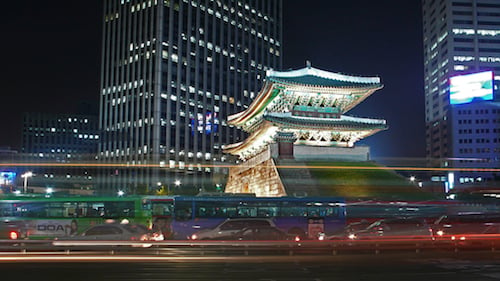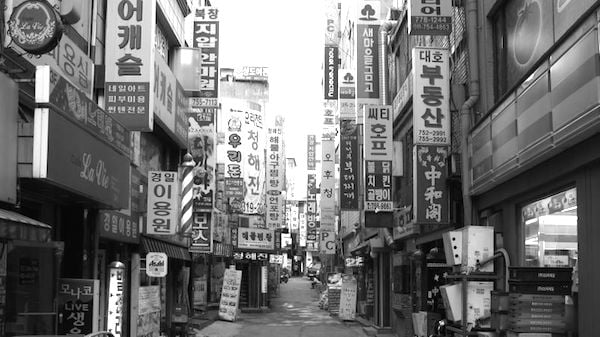9 Surprising Facts About the Korean Language
South Korea isn’t huge: it’s the 109th-largest country in the world. But despite its small physical size, it’s made quite an impact internationally. Its automobiles such as Hyundai and Kia are sold all over the world; its catchy K-Pop tunes are gaining traction worldwide; and its delicious cuisine can be found in restaurants throughout the globe. But how much do you know about the Korean language? Do you know what “Seoul” means? Or the unique way of saying “Swiss army knife” in Korean? Continue on to find out the answers to these questions and more.
Table of Contents
- 1. Korean is a language isolate
- 2. Its vocabulary is heavily influenced by Chinese
- 3. Verbs always come last in Korean sentences
- 4. There are two different counting systems
- 5. The language spoken in North and South Korea is different
- 6. There are seven levels of respect built into the language
- 7. In Korean, Seoul means “capital city”
- 8. Korean had no alphabet until the 15th century
- 9. The word for “Swiss Army Knife” comes from an American TV series
 Image via tylerdurden1 / flickr
Image via tylerdurden1 / flickr
1. Korean is a language isolate
Although some linguists have posed that Korean is in the “Altaic” language group and is thus related to languages like Turkish and Finnish, this theory has been largely discredited. Instead, Korean is more commonly classified as a language isolate, which means it shows no significant link to any other existing language on Earth.
2. Its vocabulary is heavily influenced by Chinese
Korean is a language isolate and has a completely different grammar from Chinese. But due to the historical connections between the Chinese and Koreans, up to 60% of Korean words are of Chinese origin. About 35% are purely Korean, and 5% are loanwords from various other languages.
3. Verbs always come last in Korean sentences
English is an SVO language, meaning that the word order is always Subject, Verb, and then Object. Korean, on the other hand, is an SOV language, meaning that the verb is always the final element in the sentence, and comes after the object.
4. There are two different counting systems
In Korean, small and large numbers use different vocabulary. One counting system uses native Korean vocabulary and is used for saying your age, counting objects, and expressing the hour when telling time. This system goes up to 99. The other system is of Chinese origin and is used for expressing the minutes when telling time, as well as several other measurements such as distance, money, and dates. It’s also used for numbers above 99.
How good is your Korean? Find out by taking our free online Korean level test!
5. The language spoken in North and South Korea is different
Due to the extensive time that the two countries have been separate, the North and South Korean languages have evolved to have distinct vocabularies, pronunciations, and even grammatical rules.
6. There are seven levels of respect built into the language
Like Japanese, Korean has a complex system of honorifics, which involves different verb endings and vocabulary depending on the relationship you have with the person you are addressing. In North Korea, the highest honorific form is reserved especially for the Great Leader, who has his own verb ending, 옵 (“op”).
7. In Korean, Seoul means “capital city”
 Image via Ivan Herman
Image via Ivan Herman
Seoul is the capital of South Korea, and with a population of over 10 million, it’s a major metropolitan hub. In Korean, Seoul simply means “capital city” — quite a literal name for the city!
8. Korean had no alphabet until the 15th century
Though the Korean language has existed for well over a thousand years, its alphabet (called hangul) wasn’t formalized until the 15th century. Before that, written Korean used Chinese characters.
9. The word for “Swiss Army Knife” comes from an American TV series
The iconic TV series MacGyver followed a secret agent who always carried a Swiss Army Knife. This term stuck in Korea, where a maekgaibeo-kal refers to his ever-present knife. Though “kal” is a native Korean word, “maekgaibeo” clearly derives from the protagonist’s name.
Even if you’re a master at K-Pop karaoke or you’ve watched every Korean horror movie in the book, you probably didn’t know that telling time in Korean involves two entirely different number systems!
Of course, there’s plenty more to learn about Korean than how to tell time. As Korea’s international presence continues to grow, now is a better time than ever to learn the language spoken by almost 80 million people worldwide. Korean, with its complex honorifics and unfamiliar script, is especially challenging for English speakers, so you should seriously think about taking tailor-made courses from a professionally trained native speaker. Send us a quick inquiry to learn more about how to learn Korean as quickly and efficiently as possible.


